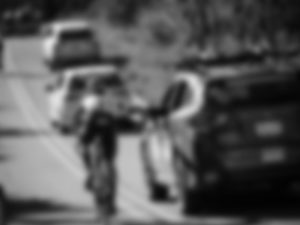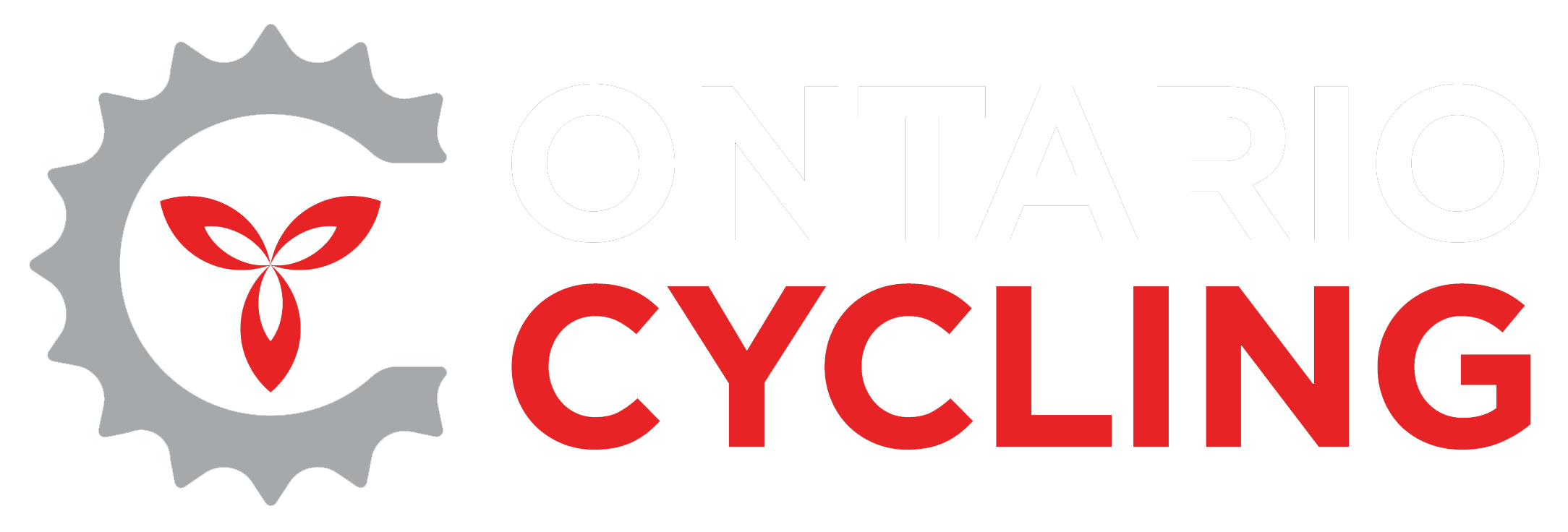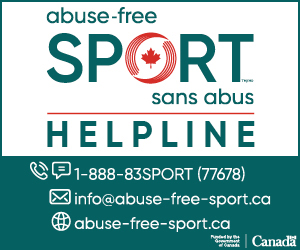Always In Motion
SAFE SPORT
Ontario Cycling (OC) is committed to practicing safe sport and ensuring our athletes are provided with a safe and positive environment in which to learn and develop.
Safe sport practices are the responsibility of all members, including coaches, parents/guardians, athletes, commissaires, club administrators and volunteers.

What is Safe Sport?
Anyone involved in sport should be able to thrive and perform at their best without fear of abuse, neglect, or other maltreatment. Creating safe sport environments that provide those conditions is a collective effort — one that requires proper training so people can recognize maltreatment and prevent or address it.
SAFE SPORT FRAMEWORK
Ontario Cycling has developed a Safe Sport Framework based on policy, education, and community programming to further strengthen the administration and delivery of our programs, events, and services.
Ontario Cycling has adopted several policies that establish expected behavior, guide decision-making, and promote accountabilities for all individuals who are associated with Ontario Cycling. These policies include:
- Person in Authority Guidelines
- Athlete Protection Guidelines
- Discipline and Complaints Policy
- Code of Conduct & Ethics
- Screening Policy
- Investigation Policy
- Safe Sport Policy
A full list of Ontario Cycling policies can be found here.
For more information on Ontario Cycling policies, please contact us.
Ontario Cycling is asking all individuals involved with the sport across Ontario to take the free safe sport training module available via the Coaching Association of Canada website. This module is mandatory for all who wish to become coaches or trainers with Ontario Cycling.
As of April 1, 2020, anyone associated with a Sport Canada-funded organization (Cycling Canada is a Sport Canada funded organization), must be trained on conduct to prevent and address maltreatment. This includes coaches, referees, parents of youth athletes, high performance staff and contractors, officials; and all administrative staff and volunteers whether they may have direct contact with athletes or not.
The safe sport module is a free, 90-minute eLearning module that gives all participants the tools to recognize, address, and prevent maltreatment in sport. The module aligns with the principles of the Universal Code of Conduct to Prevent and Address Maltreatment in Sport and meets Sport Canada requirements for Safe Sport education.
Visit the safe sport training site for more information.
To take the training, you must create an account in “The Locker”, even if you are not a coach (it’s free!) We suggest saving a screenshot of the final slide when completed for your records.
Other online resources (mainly for coaches) that can be completed from home include the following (please note fees may be required).
For more info on coaching resources, please contact Ontario Cycling’s Grassroots & Community Developer.
Respect in Sport is an accessible, online resource in the prevention of bullying, abuse, harassment, and discrimination (BAHD). The program’s mission is to empower participants to recognize signs of BAHD and eliminate it from the game, through a global culture of respect.
The program is a proactive, educational program that empowers sport activity leaders and parents with the tools to ensure the game is enjoyable and respectful for themselves, their children, and all other stakeholders in the game.
For more information on the program, please click here.
CYCLING CANADA, ONTARIO CYCLING AND SAFE SPORT
Cycling Canada and Ontario Cycling are committed to a sport environment free from abuse that is safe for all participants.
Cycling Canada and Ontario Cycling have zero tolerance for any type of abuse. Individuals are required to report abuse or suspected abuse to Cycling Canada or to the Ontario Cycling so that those matters can be addressed in an expeditious and professional manner.

Cycling Canada Independent Third Party
As part of this commitment to Safe Sport, Cycling Canada has selected W&W Dispute Resolution Services Inc. as their independent, third-party contact (Safe Sport Officer) who is empowered to supersede Cycling Canada staff and launch appropriate investigations as required based on policies, evidence or a situation reported. The independent Safe Sport Officer has significant experience dealing with sport disputes and concerns.
For Provincial Team activity or club related concerns/complaints, we do encourage individuals to contact Ontario Cycling directly. Situations involving forms of misconduct such as emotional or physical misconduct, bullying, hazing, or harassment should be reported immediately.
For concerns/complaints related to National Team and Cycling Canada events/activities, we encourage individuals to complete the following Complaint Submission Form to the best of their ability and submit to our independent, third-party contact.
CANADIAN SPORT HELPLINE
An independent helpline has been set up with the support of Sport Canada and the Sport Dispute Resolution Centre of Canada.
Anyone with a concern, who is not comfortable reaching out to Cycling Canada’s appointed independent Safe Sport Officer, should feel comfortable reaching out to this free and confidential service as well. Information on their services and how to contact them can be found at; abuse-free-sport.ca. If you are the victim of abuse, harassment, or discrimination, or you’ve witnessed such an incident within our sport, you are encouraged to contact the Canadian Sport Helpline by phone or text at 1-888-83SPORT (77678), or by email to [email protected] , 12 hours a day, 7 days a week.
Abuse-Free Sport is an independent program that is part of a growing national movement to rid Canadian sport of all forms of harassment, discrimination, and abuse.
The Office of the Sport Integrity Commissioner (the Office) serves as the central hub. It operates independently to administer complaints about alleged violations of the Universal Code of Conduct to Prevent and Address Maltreatment in Sport (UCCMS).
Where there are admissible allegations of abuse, harassment, or discrimination, the Office conducts independent investigations and recommends sanctions against individuals who violate the UCCMS.

ONTARIO CYCLING OPEN AND OBSERVABLE ENVIRONMENTS (RULE OF 2)
Open, observable, and justifiable interactions and communications are strongly recommended to foster safety, enhance protection, and help reduce vulnerability of both the athlete and adult(s) in a position of trust.
Commonly referred to as the Rule of Two, it means that there will always be two screened and safety-trained adults with a participant, especially a minor athlete, when in a potentially vulnerable situation.
Vulnerable situations include but are not limited to:
- Closed doors meetings
- Medical treatments
- Travel to and from trainings, competitions, events, or activities
- Electronic communications
- Any training or competitive environments without a second coach or responsible adult present (in the gym, in the weight room, etc.)
“Open and Observable Environments” is Ontario Cycling’s version of Rule of Two. As in rule of two, this practice still involves making meaningful and concerted efforts to avoid situations where a person in authority (coach, official, staff member, IST member etc.) might be alone with an athlete and/or vulnerable individual.
The name refers to the fact that interactions between an individual and an individual who is in a position of trust/authority should be in an environment or space that is both “open” and “observable” to others.
For more information, please visit the Coaches of Ontario website.

CONCUSSIONs
Ontario Cycling is committed to the long-term health of our athletes and by working closely with the Ministry of Sport in Ontario in the application of Rowans Law we can ensure that current and relevant health information is available to our members.
ROWAN's LAW
Rowan’s Law legislation was passed by the Ontario Government in 2018. This legislation is named in memory of Rowan Stringer who died in 2013 of Second Impact Syndrome – the result of suffering multiple concussions playing rugby three times in six days. The legislation is designed to create a safer environment for competitive amateur athletes, children, and youth to play sport.
Knowing how to recognize the signs and symptoms of a concussion, and what to do if a concussion happens – whether you’re an athlete, a student, a parent, a coach, a team trainer, an official or an educator– saves lives.
Ontario Cycling is committed to being a leader in the support, and implementation of Rowan’s Law. Ontario Cycling, and by association all our Member Clubs, Organizers and registrants are legally bound by the requirements of the Law.
For more information on concussion prevention, identification, management and treatment, we invite you to visit the Ministry of Ontario Concussion Safety webpage.
Cycling Canada Independent Third Party
We also invite you to check out the Holland Bloorview Concussion Centre’s Concussion Handbook.
Additional Links & Ressources
Photographer Acknowledgement
The photographs and images used on the official website of Ontario Cycling are courtesy of:
The photographs and images used on the official website of Ontario Cycling are courtesy of:
The content and material available on this Website, including, but not limited to, graphics, logos, sounds, images, software, text and information (collectively, “Content”) are protected by copyrights, trademarks, servicemarks, patents or other proprietary rights or laws and may not be modified in any way.
By entering this Website, user acknowledges and agree that the Content is owned or licensed by Ontario Cycling or used by Ontario Cycling with permission, and may not be used by user without prior written approval.
Without in any way waiving any of the foregoing rights, user may download one copy of the material on this Website for personal, noncommercial home use only, provided no copyright, trademark or other proprietary notices are changed or deleted. Content may not be copied, reproduced, modified, republished, uploaded, posted, transmitted or distributed in any form without Ontario Cycling’s prior written consent.
Any other use of this Website without the prior written authorization of Ontario Cycling is prohibited. The permission to recopy by an individual does not allow for incorporation of material or any part of it in any work or publication, whether in hard copy, electronic, or any other form. Ontario Cycling and the holder of any other intellectual property rights in the Content do not grant any express or implied right to user under any copyrights, trademarks, servicemarks, patents, or trade secret information of Ontario Cycling
All rights not expressly granted herein are reserved. Any unauthorized use of the Content may violate copyright, trademark and other applicable laws and could result in criminal or civil penalties.

